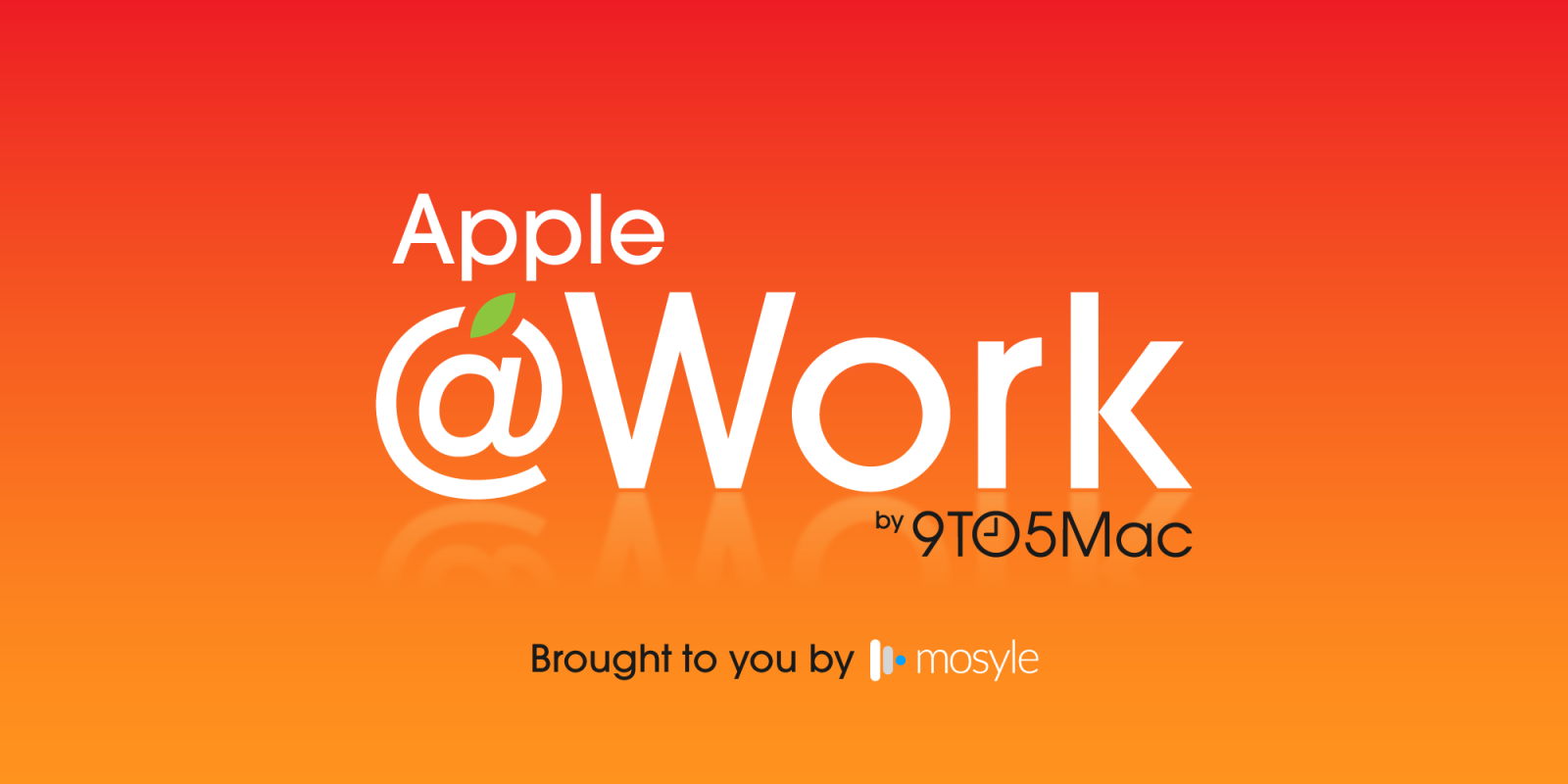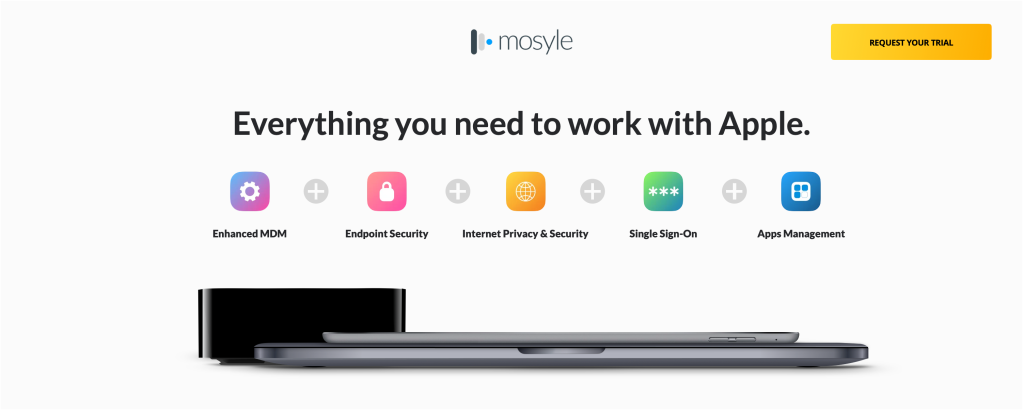
Apple @ Work is exclusively brought to you by Mosyle, the only Apple Unified Platform. Mosyle is the only solution that integrates in a single professional-grade platform all the solutions necessary to seamlessly and automatically deploy, manage & protect Apple devices at work. Over 45,000 organizations trust Mosyle to make millions of Apple devices work-ready with no effort and at an affordable cost. Request your EXTENDED TRIAL today and understand why Mosyle is everything you need to work with Apple.
One of the headline announcements from WWDC was the upcoming release of Apple Intelligence. True to form, Apple is putting its own spin on “AI” and rethinking how AI should work to maximize the power of the devices while also protecting user privacy. The big question is: what does it mean for IT teams?
About Apple @ Work: Bradley Chambers managed an enterprise IT network from 2009 to 2021. Through his experience deploying and managing firewalls, switches, a mobile device management system, enterprise grade Wi-Fi, 1000s of Macs, and 1000s of iPads, Bradley will highlight ways in which Apple IT managers deploy Apple devices, build networks to support them, train users, stories from the trenches of IT management, and ways Apple could improve its products for IT departments.

What is Apple Intelligence?
Apple Intelligence features include personalized prioritization of notifications on iPhone, generative writing tools across various apps, image generation via prompt, and more. There are five key pillars of Apple Intelligence that, in combination, distinguish it from other AI (artificial intelligence) tools that already exist.
- Powerful: Capable of offering truly useful help
- Intuitive: Easy to use and accessible
- Integrated: Baked into the core of your devices
- Personal: Understands your personal context
- Private: Built from the ground up for privacy
What devices support Apple Intelligence?
Apple Intelligence is coming in a software update, but it’s unavailable on all devices. Particularly on the iPhone side, it’s limited to the iPhone 15 Pro lineup and the forthcoming iPhone 16 lineup. As companies think through how to use Apple Intelligence at work, device support could be a key part of the plan.
iPhones
- iPhone 15 Pro
- iPhone 15 Pro Max
- *Full iPhone 16 lineup expected to support AI, too
Macs
- M3 MacBook Air
- M2 MacBook Air
- M1 MacBook Air
- M3 MacBook Pro
- M2 MacBook Pro
- M1 MacBook Pro
- M3 iMac
- M1 iMac
- M2 Mac mini
- M1 Mac mini
- M2 Mac Studio
- M1 Mac Studio
- M2 Mac Pro
iPads
- M4 iPad Pro
- M2 iPad Pro
- M1 iPad Pro
- M2 iPad Air
- M1 iPad Air
Private cloud compute
Apple Intelligence may need extra computing power that the device alone cannot handle. To address this, Apple has incorporated a second level of processing power called Private Cloud Compute (PCC) into the Apple Intelligence framework. PCC is a cloud-based processing system designed to handle more complex requests by utilizing larger and more sophisticated models in the cloud.
Apple has developed Private Cloud Compute (PCC), a system based on server hardware powered by Apple silicon and designed to ensure security. PCC uses a subset of iOS and macOS to support Large Language Model (LLM) inference workloads with minimal attack surface.
When a user’s device requests access to PCC, the request is encrypted end-to-end using public keys of verified PCC nodes, ensuring security during transit.
The “Private” aspect of PCC includes:
- User data uploaded to Apple’s cloud is used only for immediate processing and not retained after the ask is complete.
- Only verified tools are used to maintain and monitor PCC to uphold security and privacy guarantees.
- PCC’s privacy protections cannot be bypassed, even during system outages.
- Attackers cannot target specific user data, only the system as a whole.
- Security researchers can verify PCC’s privacy and security guarantees.
Once Apple Intelligence is fully rolled out, security researchers can assess Apple’s fulfillment of these objectives.
ChatGPT integration
Apple is planning to incorporate optional integration between Apple Intelligence and ChatGPT, which will enhance the capabilities of Siri and writing tools. For example, Siri could utilize ChatGPT to respond to questions about photos, and in the case of composing text in a writing tool, ChatGPT may take the lead.
This integration will always be optional. Users will have complete control over when and if ChatGPT is used, and they will need to confirm whether they want their information shared with the service. IT teams will also have a say in this, which we will discuss shortly. Using ChatGPT within Apple Intelligence will not require a separate OpenAI account, but if you have one, you will be able to access the additional features it offers directly from within Apple Intelligence.
Apple Intelligence and IT teams
Apple Intelligence is expected to launch this fall in beta form, although the exact timing is still to be announced. This gives us a few months to address the concerns that our organization’s security and compliance teams are likely to have.
The top questions from IT teams will probably include:
- What could Apple Intelligence do with our company data?
- Where is that data going?
- Who will have access to it?
- How do we know it’s safe?
- Can we log what is happening?
Other AI tools have also faced these questions, and Apple seems prepared to address them. Apple says that it will deliberately limit the data sent off-device. In the case of PCC, it has strong guardrails to protect end-user data privacy.
Apple isn’t just asking organizations to trust it (which is a delicate balance for compliance); it’s building verifiability into Apple Intelligence. Apple has also promised a third-party audit and will share the results publicly.
The partnership with OpenAI might have raised the most questions for security teams. However, it’s important to remember that using ChatGPT through Apple Intelligence will require user permission. OpenAI appears to follow some of Apple’s guidelines on data governance for Apple Intelligence: user IP addresses opting to use ChatGPT will be obfuscated, user requests to ChatGPT won’t be stored in the cloud, and that data won’t be used to train OpenAI’s models. Will IT teams be able to block the ChatGPT integration with a profile? Time will tell. Apple will likely enable MDM solutions to restrict access to and also manage the relationship with Apple Intelligence.
One question is whether IT will be able to block access to Apple Intelligence entirely. A more granular approach would make sense: rather than giving IT and security teams a blanket kill switch for the entire service, enable systems to control various aspects of it. At a minimum, IT teams might want the ability to disable PCC and ChatGPT and rely 100% on on-device processing.
Ultimately, I hope Apple provides tools for IT teams to control the usage of Apple Intelligence. Whether blocking completely certain industries or at least controlling various pieces of them. As Apple continues to become one of the dominant endpoints in the enterprise, it has to build guardrails for IT steams. Generative AI services have been the wild wild west up until now, so I am glad to see Apple taking a measured approach to on-device usage.
Apple @ Work is exclusively brought to you by Mosyle, the only Apple Unified Platform. Mosyle is the only solution that integrates in a single professional-grade platform all the solutions necessary to seamlessly and automatically deploy, manage & protect Apple devices at work. Over 45,000 organizations trust Mosyle to make millions of Apple devices work-ready with no effort and at an affordable cost. Request your EXTENDED TRIAL today and understand why Mosyle is everything you need to work with Apple.
FTC: We use income earning auto affiliate links. More.




